IF you visit one of coffee entrepreneur Joey Mah’s cafes, do yourself a favour – don’t ask if there’s anything “ice-blended”. In fact, his first cafe, the Nowhere Man pop-up cafe, doesn’t even serve sugar – because a cup of coffee prepared the right way should already have enough sweetness.
Call him a purist, connoisseur or even a snob; the 29-year-old doesn’t care. Since he first fell in love with coffee culture in 2009, he’s acquired a refined taste for the drink, and all he wants to do is help others experience what he does.
“It’s all about doing it right,” said Mah, while meticulously preparing what he notes is a RM60 cup of filtered coffee for us at his second and latest cafe, Three Little Birds in Sentul, Kuala Lumpur.
The perfect cup, he said, should have a balance of sweetness, acidity and bitterness, something he produces at Three Little Birds behind a bar that looks more like a school science lab – complete with a temperature-controlled kettle, digital weighing scale and beam heater (for siphon coffee). And how did he learn to use all this gadgetry to produce such refined coffee? Easy. He spent the last few years moonlighting as a barista for free.
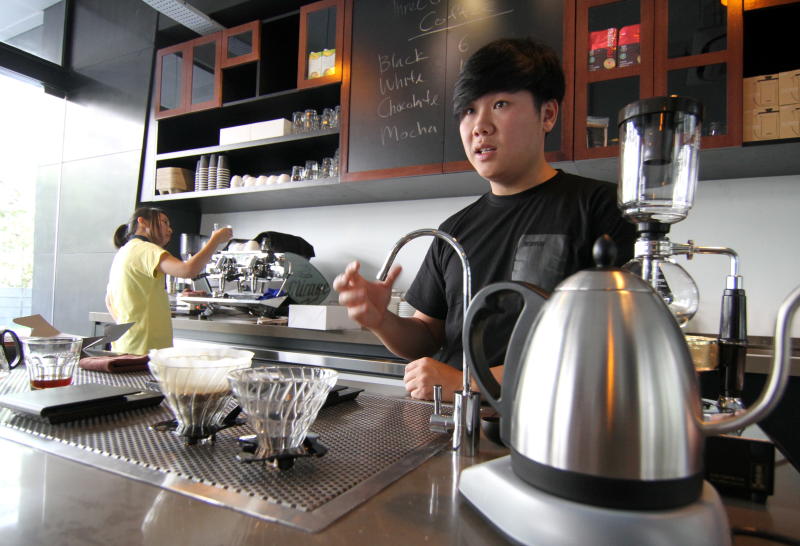
The coffee bar at the Three Little Birds cafe looks more like a school science lab. Co-owner Joey Mah has just finished making some filtered coffee worth around RM60 a cup.
“Everyone wants to open their own cafe these days, but do they really love coffee? Do they know what it takes to make a good cup? If you just have money you wanna blow on a cafe with nice ambience and fancy furniture, when a new trendier place pops-up, you’re gone. But if you have good coffee, people will keep coming back.”
Both of Mah’s cafes are co-owned with his friends Michael Wilson and Amirah Mohammad, the husband and wife team behind the popular Artisan Roast cafes which arguably popularised the artisanal coffee movement in Malaysia. It was there that Mah went from eager-beaver volunteer barista to a business partner and entrepreneur, quitting his job as a regional sales manager for an automotive accessories company after saving up enough money to get in the business.
“I know it’s a bit of a cliche, but it’s not about the money. I’m doing this because of how much I love coffee,” he said. “Coffee is very subjective. Everyone has their preferences, but I believe we all share a common ground (pun intended?) – if it’s produced the right way, by a good barista using good beans, we’ll enjoy it.”
Last year, he and Wilson flew all the way to a farm in Minas Gerais, Brazil to source beans for their new coffee roaster, which incidentally they invested nearly RM500,000 to import to Malaysia.
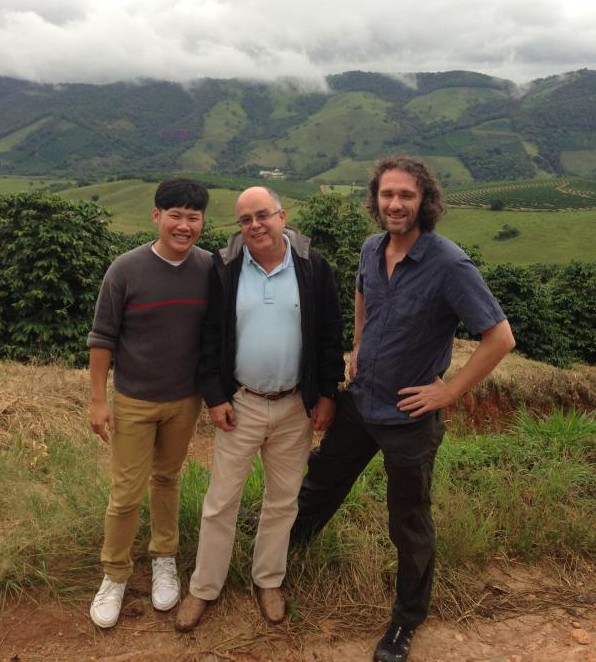
Mah and Michael Wilson (right) with one of the coffee farmers they met while hunting for beans in Minas Gerais, Brazil.
The roaster is now housed in Artisan Roastery, right next to Three Little Birds. There, they roast the entire container’s worth of beans they shipped from Brazil, to be supplied to cafes around the country. They also plan to have barista training at the roastery, as well as “cupping sessions”, which contrary to what it sounds like, is not something inmates do in prison. It’s where people sample different coffees to review their taste and aroma.
“We created Artisan Roastery because we wanted to improve the whole coffee industry (in Malaysia). Now we can supply good, well-roasted beans to everyone,” said Mah, adding that the farmers in Brazil would benefit from not having to deal with agents and exporters as well.
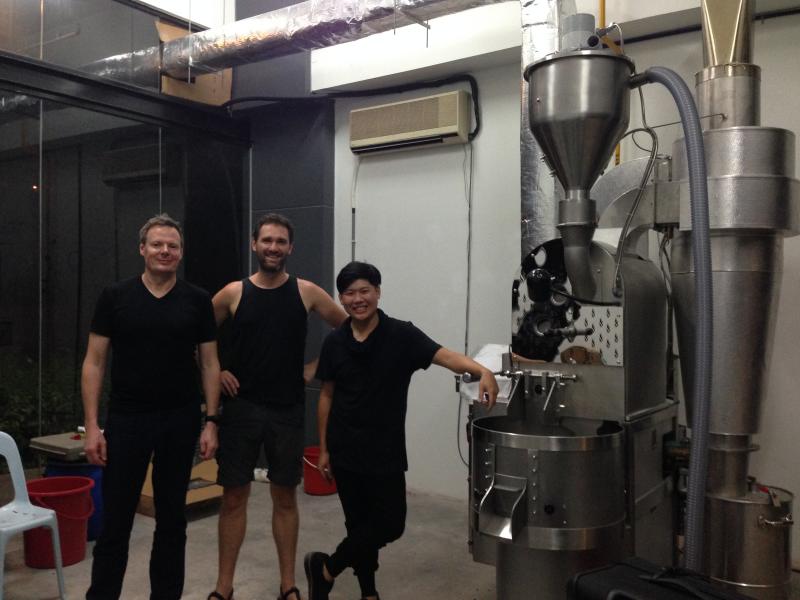
Coffee entrepreneurs (from right) Joey Mah and Michael Wilson with Danish master coffee roaster Michael de Renouard and the coffee roaster which cost almost RM500,000 for them to import.
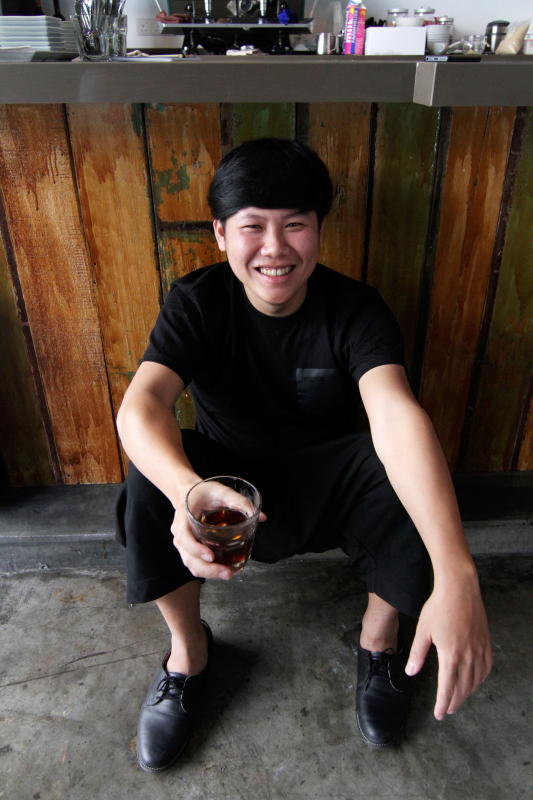
Mah has gone from a volunteer barista at Artisan Roast cafe to a co-owner of two cafes and the Artisan Roastery.
Coffee craze
So why exactly are young Malaysians getting hooked on fancy coffee all of a sudden?
Barista Azlan Ariff Azman from Sprezzatura Coffee, another new cafe in Petaling Jaya, Selangor, said we’re merely discovering now what other countries have a long time ago – coffee is a “necessity”.
“It’s the difference between a zombie and an effective professional. It’s not like bubble tea, which doesn’t bring you any good. Coffee is actually healthy. Google it – there are tonnes of benefits,” said Azlan.
Students returning from overseas have also helped jump-start the trend. According to Wilson, most of the early customers at Artisan were young people who had studied in Melbourne, where coffee is a semi-religion.
Well back in Malaysia, food in general is a semi-religion, and that’s another big factor for Wilson, who moved to Malaysia from New Zealand in 2010.
“Malaysians appreciate good food more than (people from most other countries), and they’ve rapidly learnt to appreciate the flavours possible with this new wave of coffee,” he said.
But does this spell the end for fans of our beloved Malaysian kopi-O?
Zekry Mohd Nor, co-founder of the Mollydookers cafe in Bukit Damansara, Kuala Lumpur, doesn’t see it happening.
“Often we forget being in Klang Valley that most of Malaysia still enjoys their kopi-O, which is not a bad thing at all. We don’t see it as competition, and we still enjoy our roti canai with dhal and sambal – especially when it’s paired with a nescafe tarik,” said Zekry.
But one thing’s for sure as far as Wilson’s concerned – artisanal coffee is here to stay.
“The coffee fad may pass, but quality never goes out of style,” he said. “At the moment the tide is rising and most cafe ventures will do well enough. But when the tide goes out, we’ll find out who’s been swimming without trunks.”

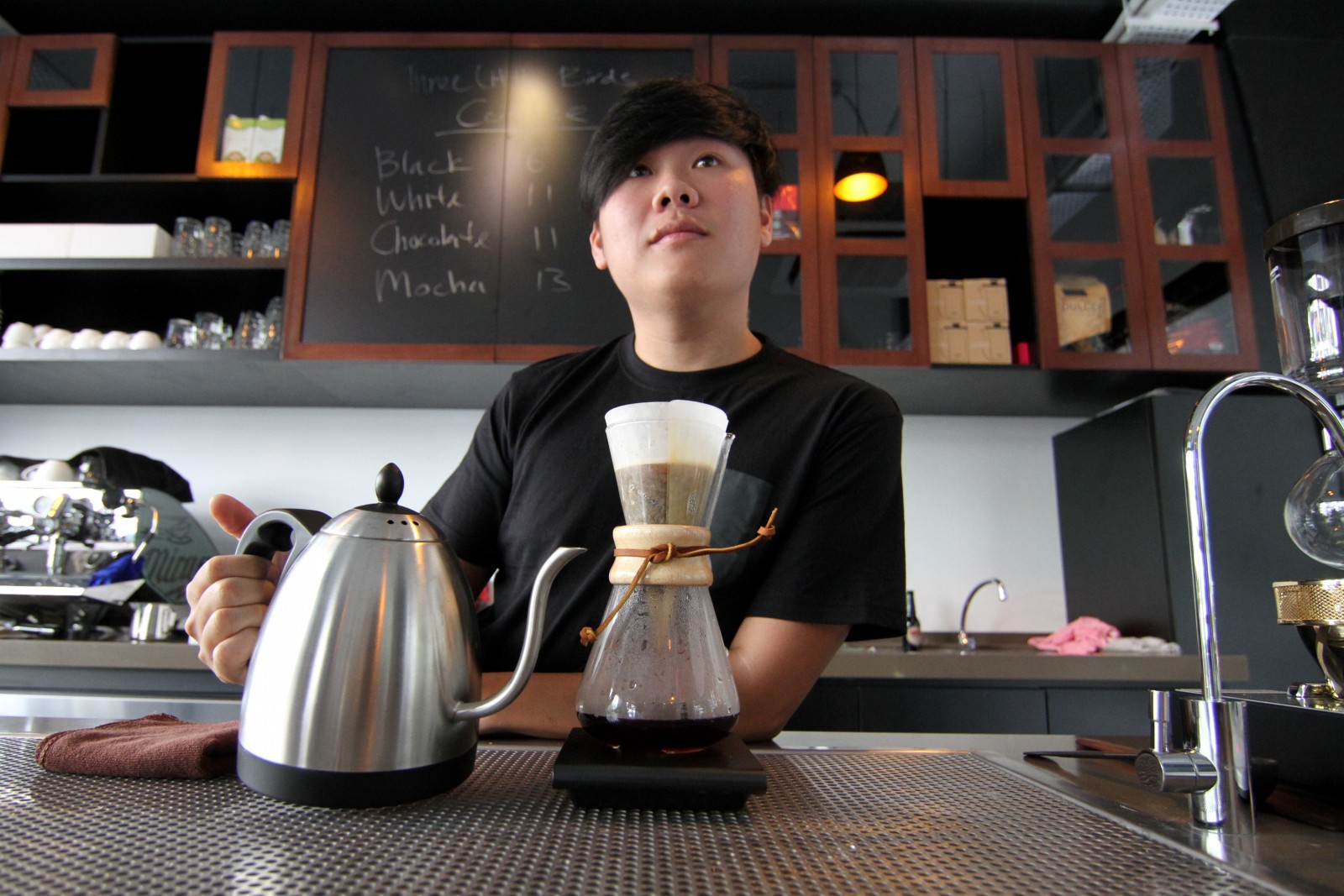
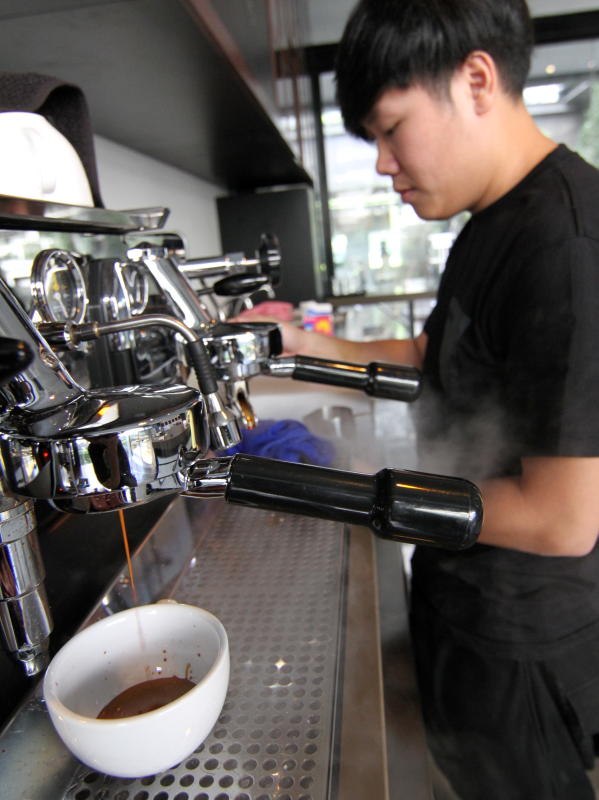


Tell us what you think!